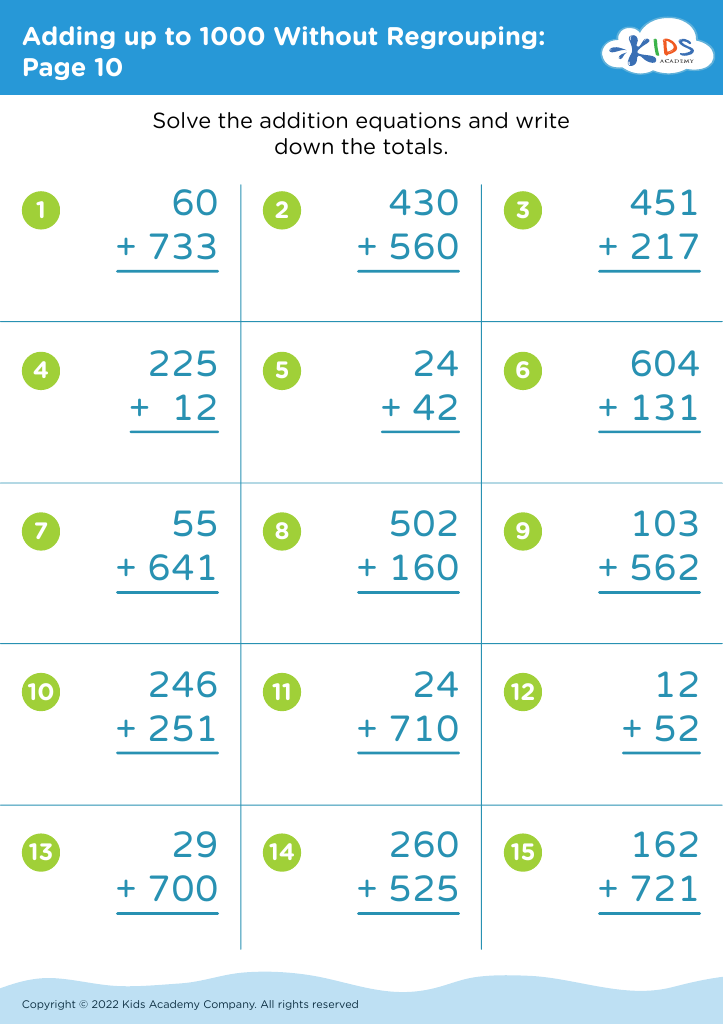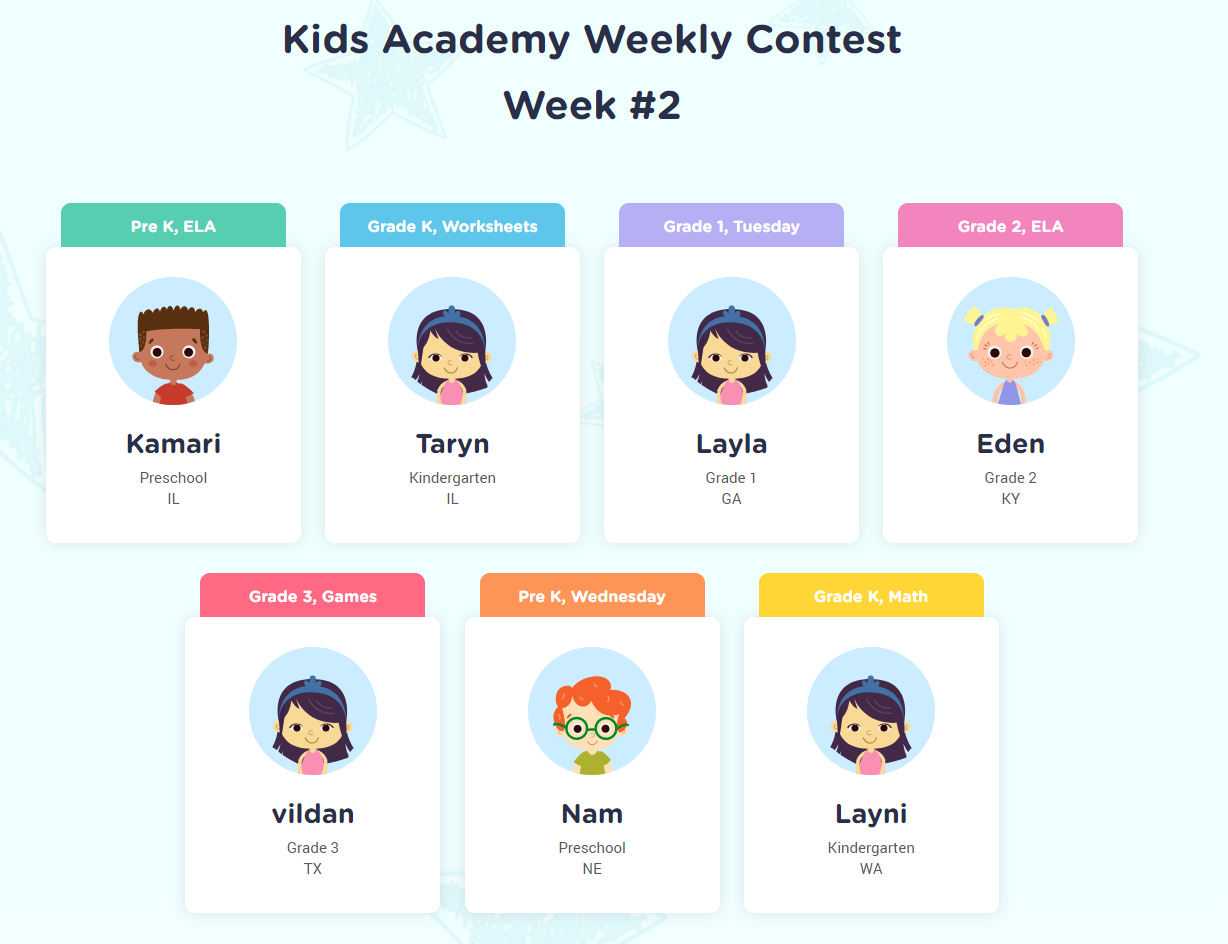Practicing addition Math Worksheets for Ages 3-7
6 filtered results
-
From - To
Boost your child's math skills with interactive and fun addition math worksheets designed for ages 3-7. Our engaging activities, created to align with early learning standards, help young learners grasp basic addition concepts through colorful illustrations and playful exercises. From counting objects to simple equations, these worksheets foster numeracy and build a strong foundation for future math success. Ideal for both classroom and at-home use, they make learning addition an enjoyable experience. Support your child's journey to mastering math with our expertly crafted worksheets, and watch their confidence soar. Visit us to explore our free printable learning resources!
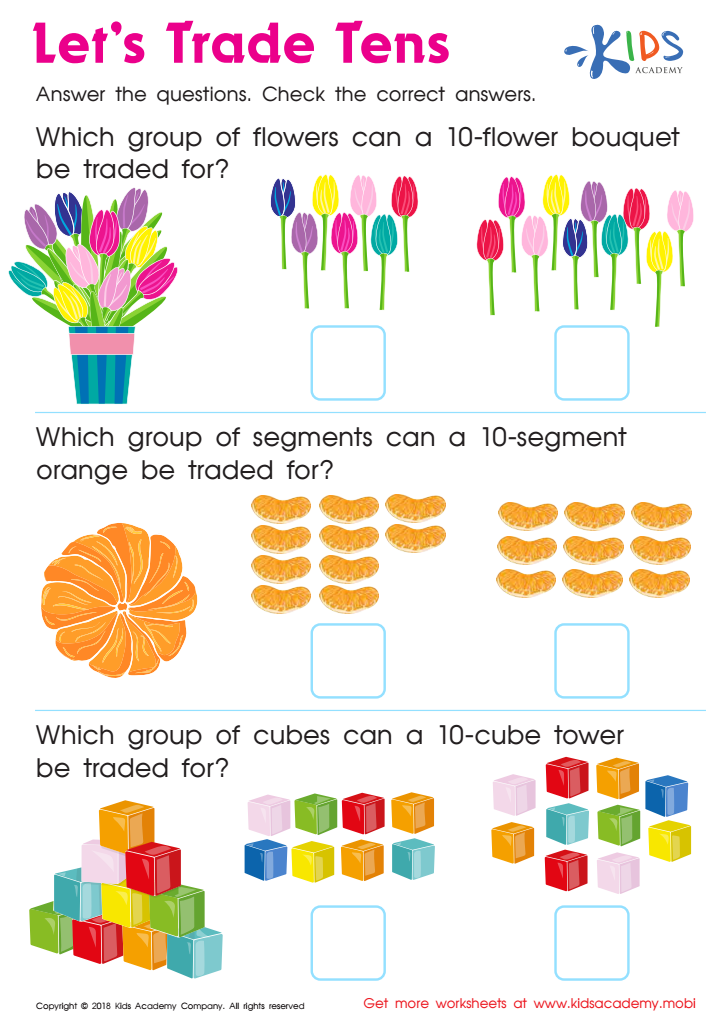

Lets Trade Tens Worksheet
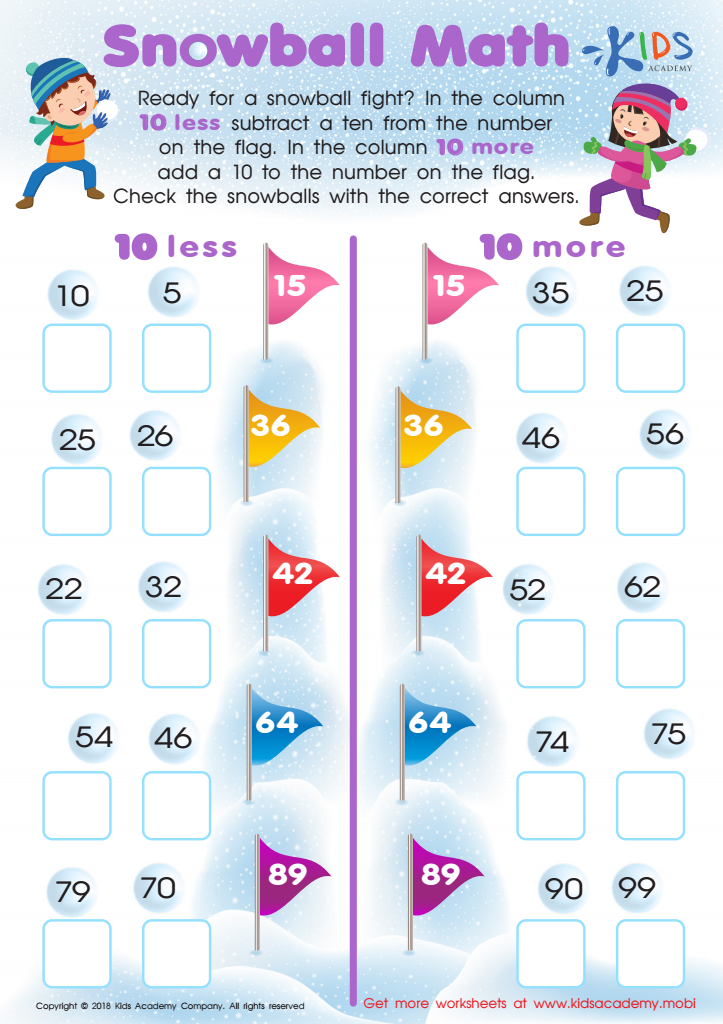

Snowball Math Worksheet
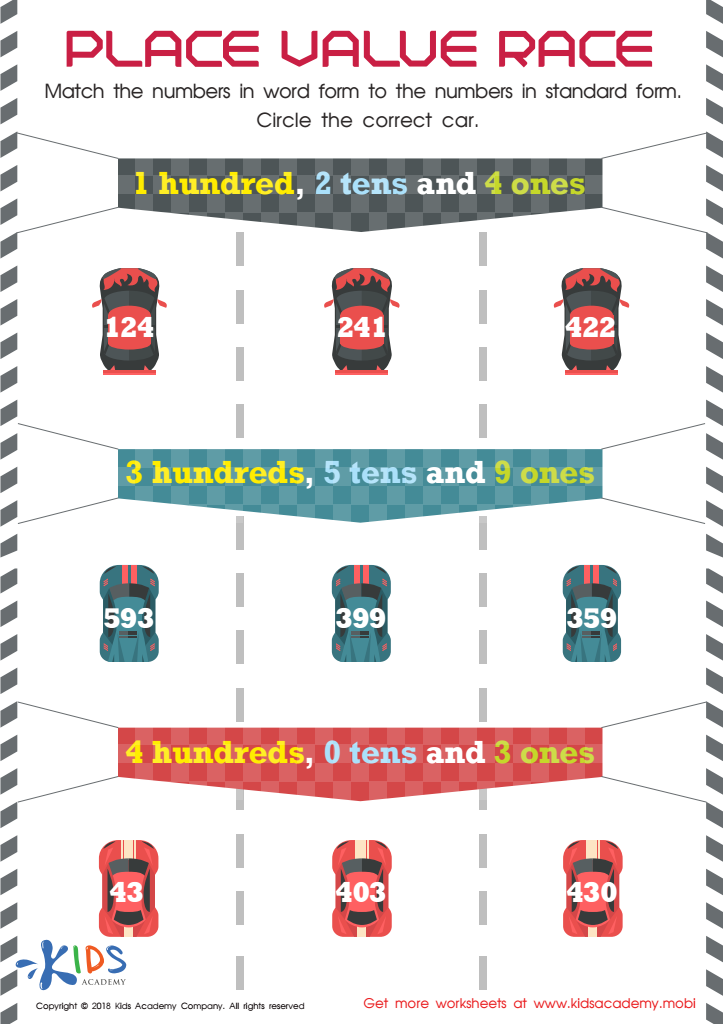

Place Value Race Worksheet
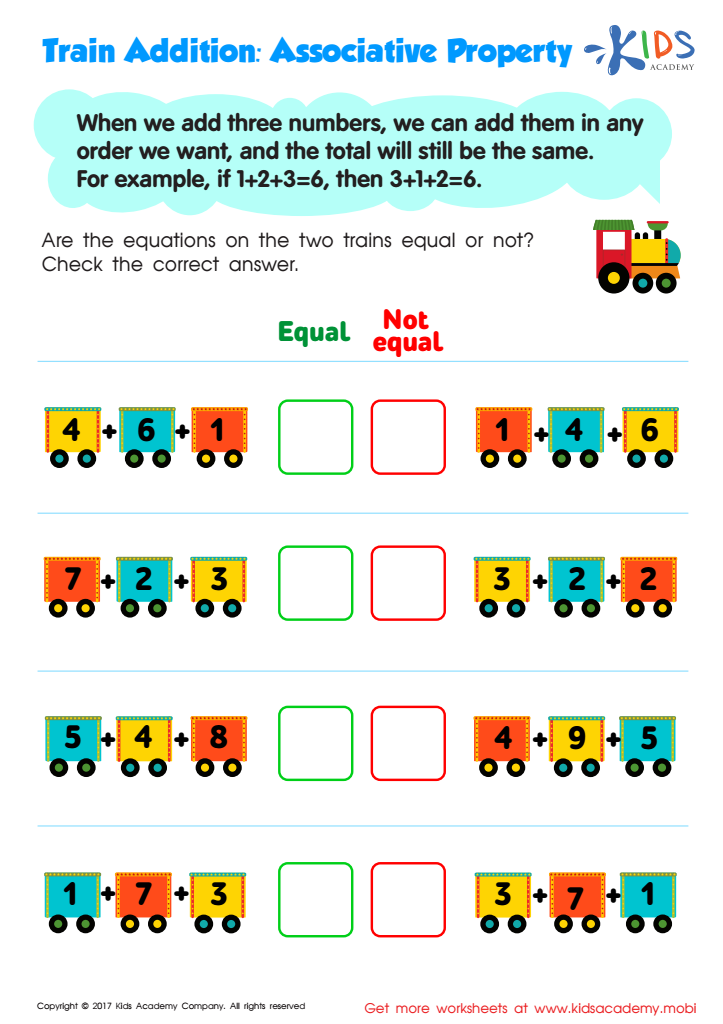

Train Addition: Associative Property Worksheet
Practicing addition math for children ages 3-7 is crucial for several developmental reasons. At this tender age, kids' brains are at a critical stage of growth and are incredibly receptive to new information, making it the ideal time to lay a strong mathematical foundation. Understanding basic addition fosters cognitive development and encourages logical reasoning and problem-solving skills—abilities that are imperative for academic success. Additionally, practicing addition builds numerical fluency, which is essential not only for more advanced mathematical concepts but also for everyday tasks such as telling time and handling money.
Moreover, early competency in math has been linked to better performance in a variety of subjects, as it enhances overall learning aptitude. When parents and teachers engage children in fun and interactive addition activities, they also help bolster confidence and establish a positive attitude towards learning. In doing so, kids are more likely to overcome any future math anxiety.
Furthermore, understanding math at an early age helps children become more analytical and develop the ability to think in a structured manner. By prioritizing addition practice for young children, parents and teachers set the stage for continuous academic success, nurturing well-rounded, confident learners ready to tackle the challenges of an evolving world.

 Assign to My Students
Assign to My Students

